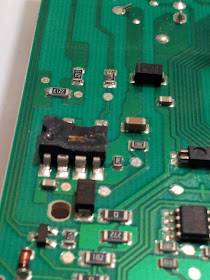I would like to start out by describing two incidents.
The first incident happened to my grandfather and was passed down to me as oral history, by my mother.
My grandfather was a hunter. He went on a safari in Africa. His guide on the Safari was a man from England.
About 20 years after the safari, my grandfather suddenly wondered what had happened to his former guide, so he sent off a letter to England, from New York.
He got back a letter from the guide's widow saying that the guide had been mauled and killed by a lion on the day that my grandfather wrote the letter.
The second incident happened to me.
I was having natural childbirth at home, here in Tarrytown, NY.
There is a part of labor called "transition." This is when the contractions transition from dilating the cervix to pushing the baby out. Transition is commonly thought of as the most painful part of labor. I'm not sure, in retrospect, whether it was really the most painful or whether, rather, it was the most emotional, possibly due to massive internal hormonal changes in changing from one type of contraction to the other.
In any case, when I went into transition, which is the time when women in labor get most emotional, called out "Mommy."
Now, we had not told my mother that I was in labor. I wasn't getting along with her that well at that point. It was 10 days before my due date. She was in Wisconsin, while I was in New York -- about a thousand miles away.
The phone rang almost immediately after I called out "Mommy."
The woman who was assisting wanted to know if I wanted to talk to her. I did not. I had only called out her name reflexively.
Still, it was fairly amazing that she called just at that moment when I called. It is said that mothers always know when their daughters are in labor.
I am thinking that these incidents can be explained by quantum mechanical entanglement.
If two people have entangled particles -- and those particles are separating from each other in some traumatic way -- then there may be some kind of transmitted reaction that can be sensed in some way by the person whose particles are not separating.
I suppose others may have written about this, and I haven't researched it, but I just wanted to memorialize my experience.
-------------
Now also, when my father had cancer, I had phantom sensations which seemed like they might be related to his tumors. It was easy to dismiss this as imagination, but then I wonder really if it was imagination or whether, again, it might have been attributable to quantum mechanical entanglement of some kind.
-------------
Addendum 9/10/15
Also Lisa Marie Presley reported crying all day the day Michael Jackson died, before she learned that he had died.
Here's a link about Quantum entanglement https://en.wikipedia.org/wiki/Quantum_entanglement Quantum entanglement can occur due merely to physical proximity of particles.
I do not believe that what happened to Lisa Marie was a coincidence. When we are in close proximity, our subatomic particles become quantum mechanically entangled. Entangled particles are able to communicate with each other somehow, even when separated. It seems to me that if something happens to the body in which the entangled particles reside then your particles could possibly sense it.
MIT article about entanglement
-------------
Now also, when my father had cancer, I had phantom sensations which seemed like they might be related to his tumors. It was easy to dismiss this as imagination, but then I wonder really if it was imagination or whether, again, it might have been attributable to quantum mechanical entanglement of some kind.
-------------
Addendum 9/10/15
Also Lisa Marie Presley reported crying all day the day Michael Jackson died, before she learned that he had died.
Here's a link about Quantum entanglement https://en.wikipedia.org/wiki/Quantum_entanglement Quantum entanglement can occur due merely to physical proximity of particles.
I do not believe that what happened to Lisa Marie was a coincidence. When we are in close proximity, our subatomic particles become quantum mechanically entangled. Entangled particles are able to communicate with each other somehow, even when separated. It seems to me that if something happens to the body in which the entangled particles reside then your particles could possibly sense it.
MIT article about entanglement







